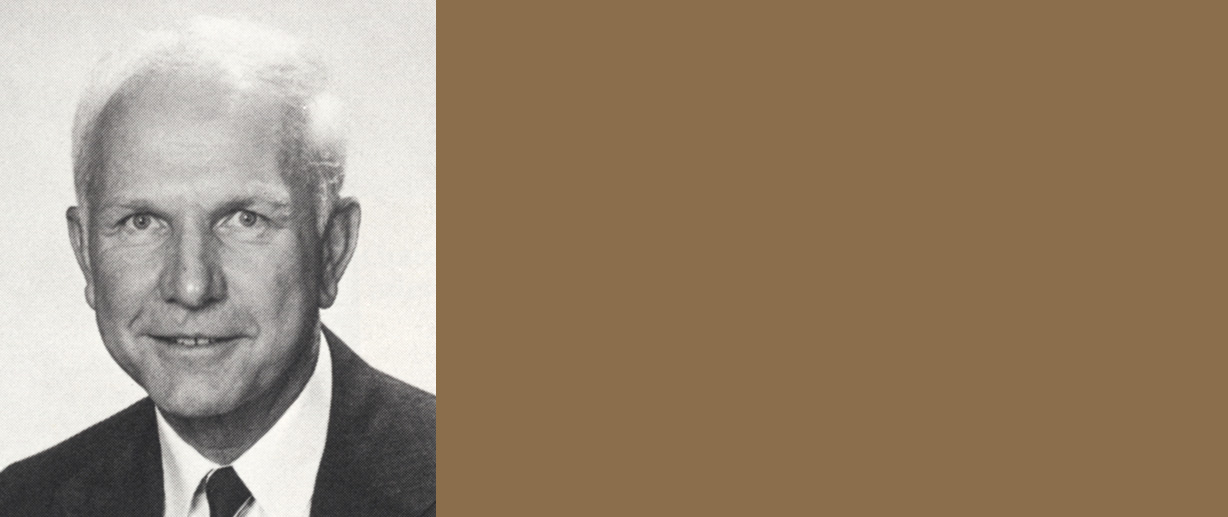Under the direction of Dr. Jim Seegars, Wofford College’s Department of Psychology gained a reputation in the 1970s for having energetic and young faculty who provided opportunities for students to participate in research. Dr. Ed Coffey ’74 wanted to experience it, and he registered for an introductory psychology course being taught by Seegars.
“I was hooked from the first lecture,” says Coffey, a neuropsychiatrist who is an affiliate professor of psychiatry and behavioral sciences with the Medical University of South Carolina. “I wanted to understand human behavior, and I wanted to be like that guy.”
Seegars would eventually become Coffey’s father-in-law and one of the most influential people in his life. Seegars died July 23.
“As a son-in-law, I got to know the man in addition to the professor, and he was even more amazing as a person,” Coffey says.
Seegars was the first chair of the college’s Department of Psychology and served in that role for 37 years before his retirement in 1999. In 2004, the psychology floor in the renovated Roger Milliken Science Center was named and dedicated in his honor.
He and his wife, Shirley Seegars, were married 69 years. Shirley died on Aug. 13.
They had seven children, including four who are Wofford alumni. Coffey’s wife, Kathy Seegars Coffey ’74, and her twin sister, Susan Seegars Harrison ’74, were among the first women to attend the college as day students. Kim Seegars Clayton graduated in 1977, and Jay Seegars graduated in 1992. Several of the Seegars’ sons-in-law are Wofford alumni, and two of their 15 grandchildren, Cate Seegars ’25 and Mason Seegars ’26, are current Wofford students. The couple also had 13 great-grandchildren.
“He was very charismatic, but not in a show-off kind of way,” Coffey says. “He was professional and referred to the science, but he connected that science in a direct, noncomplicated way to what we as people say and think and do.
“He had a way of tying the science to one’s everyday life. You were immediately interested in what was said. It wasn’t a dry piece of research. It was immediately relevant to what was going on at the time.”
Seegars was active in the Spartanburg community and the Episcopal Church of the Advent. Coffey says that Seegars taught a Sunday school class that centered around that week’s cover of Time magazine. The class would discuss how the cover reflected what people were saying, thinking and doing, and what might have been taking place.
In addition to serving his church, Seegars was president of the South Carolina Psychologists Association and volunteered on many boards, including Spartanburg Mental Health, the Charles Lea Center and the York Place Episcopal Home for Children. He also maintained a private clinical practice.
“He was literally a therapist for everybody,” says Coffey, who watched Seegars have dinner with his family after a day of teaching. Then, Seegars would often return calls late in the evening and lead therapy sessions.
Coffey was Wofford’s fifth Rhodes Scholar. He never saw his application packet, but he knows Seegars, President Joe Lesesne and Dean of the College B.G. Stephens worked on his behalf behind the scenes.
“Like all of us, he loved Wofford College, the people and the faculty he worked with,” Coffey says. “Like many of those faculty, they were all good friends, and I think in part it became like family to him. He understood there’s no richer life than that as a teacher.”
